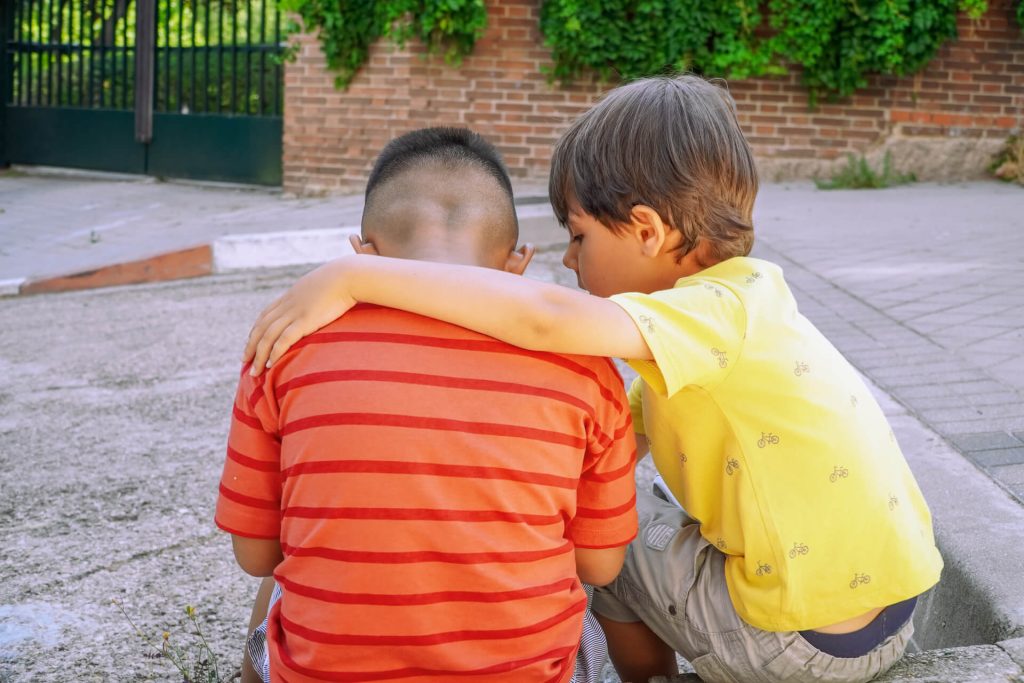Sons are attached to mothers, and fathers are attached to daughters. We’ve heard this saying so often that it’s entered our subconscious and is a given as we grow up. “You’ll see how sons are devoted to their mothers,” people would tell me (while urging me to have a daughter, but that’s another story). Honestly, I didn’t notice that they were any more attached to me than girls their age were to their mothers. In fact, the two of them differed more in how they showed affection than I noticed any difference between genders. But that old saying seemed so real to me, and I tried to remember why. And then all those mothers from old songs and stories came back to my memory. Or at least the outlines of those mothers. Think about it. What kind of women are they, and what do all these sons admire?
It’s always an ode to a mother’s modesty, dedication, unconditional love, and sacrifice. The mother is always caring and vigilant, full of understanding while the loyal wife is off on some wild adventure. You know, “listen, mother, to my song,” “an old mother talking to four walls,” “the mother will cry, and you will curse me”… And so it is very often in real life. We remember our grandmothers and mothers for what they did for us, quietly, ready to sacrifice for the whole family. Mothers who are the only ones awake waiting for their children to return home, mothers who don’t sleep because their children are uncovered, who sew and get up before everyone to fry a mountain of fritters. All of this is undeniably true and beautiful. But, but, but… Who were these women? There’s no way they were admirable only for their infinite giving.
They say that when babies start throwing things , they’re actually learning that the world exists outside of them. It seems to me that this is a lesson we never fully learn. We are all the main characters in our lives and often think that others exist only to help and push us toward a happy ending. The truth is that no one is more called than parents to play this role. But all characters are small universes with their own feelings, dreams, and peculiarities.
When I remember myself as a child and how I saw my mom, I recall enjoying the most when she let me imitate her. To wear her sandals and a dress that was too long for me. Playing with her mirror and making her tell me a hundred times how she bought it on vacation. How we looked at black-and-white photographs, and she told me about the people in the pictures, her social life, and her dreams when she was a high school student. She would tell me which book was in her hand. And I still vividly remember the excitement of hearing about her life, desires, and aspirations outside the role of mom.
I would like my sons to see me beyond the role of a mom who is there to cook, care, and help. I cherish when they tell me they’ve seen something they think I’d like when they ask to talk about life outside the home when they want to know exactly what I do and who I like most at work. The time when they will no longer need my services is very near. What then? Oh, I hope that after that, we will hang out because we enjoy talking, because we are interesting to each other, and love is strong and above all. And if they learn that parents have personalities and feelings beyond that role, they will learn to listen to the people around them. To be aware that no one exists in this world just for them. And finally, to demand that no one dehumanizes them and reduces them to one role.
There is a trend, especially on social media. A trick for collecting likes. A portrait of an old woman, you can’t tell if she’s 50 or 70 because a hard life has taken its toll. And a text about a mother who didn’t eat so the children could have more. Or she cut up her clothes to sew additional dresses for the children. With a nostalgic verse, “Oh, those were mothers.” No, the creators of such posts are selfish and self-centered. Bread should be divided into as many parts as there are people at the table. Food is needed by the mother and the father just as much as the children. It is a much better lesson to learn to be supportive and share than to expect someone’s, in this case, unnecessary sacrifice.
As funny as it may seem, it starts from there. Mothers love to eat cold, but actually, while they serve everyone at the table. They don’t like to eat drumsticks but whatever is left. Their favorite cake is the one from the end so it doesn’t go to waste. We teach children to serve other children when they eat something. Why don’t we teach them the same for family members? It doesn’t mean you love them less if you teach them that your desires and needs also exist and that food should be shared. Like everything in life.
While I write this, I try to remember what my mother’s favorite dish is. And how often she made it. I know my sister’s, my father’s, and mine without having to recall it.





